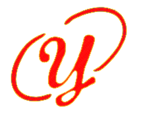As the infrastructure of the retail industry, the supermarket shelves are mainly used for product display and storage. These shelves are usually designed with various sizes and shapes to accommodate different types and sizes of goods on display. Supermarket shelves not only help with the display and sales of products but also optimize the spatial layout of supermarkets to enhance shopping experience of customers. According to the “Report of 2025-2030 China Supermarket Shelf Industry Market Depth Research and Development Trends”:
I. Current Market Development
Market Size: The market of supermarket shelves is enormous, mainly driven by the demands from supermarkets, warehousing & distribution, and retail industries. In recent years, with the rapid development of China’s economy and the continuous increase in the number of shopping malls and supermarkets, the market of the supermarket shelf industry has been constantly growing.
Market Structure: The market structure of supermarket shelves is relatively fragmented, and the competition is fierce. There are many manufacturers and suppliers in the market, who provide all kinds of types and specifications of shelf to serve the needs of different industries.
Product Types: Supermarket shelves come in a variety, including heavy-duty shelves, medium-duty shelves, light-duty shelves, multi-functional shelves, etc. These shelves have their own features and advantages based on different usages and scenarios.
Enterprise Types: The enterprises in the supermarket shelf industry are primarily divided into three categories: design enterprises, production enterprises, and sales enterprises.
II. Market Prospects
Continuous Growth: In the line with prediction from the abovementioned report, the market size of supermarket shelves are expected with continuous growth in the coming years. With the escalating demands for customers shopping experience and the emerging of new retail concepts, the supermarket shelf industry will face more growing opportunities.
Intelligent Trend: With the continuing evolvement of the Internet of Things, artificial intelligence, and big data technology, smart shelves and automated warehousing systems will turn into the mainstream in the future. These systems can improve warehousing efficiency, reduce costs, and are gradually favored by enterprises.
Custom Demand: With the changing consumer requirements, the market demands for customization will increase as well. Enterprises need to provide custom solutions according to the specific needs of customers to meet the needs of different industries.
III. Market Environment
Policy Environment: The government’s requirements for environmental protection and sustainable development are becoming increasingly stringent, which will boost the shelf industry to develop in a more environmental-friendly and energy-saving direction. At the same time, relevant industrial policies may also provide more development opportunities for the supermarket shelf industry.
Economic Environment: Changes in the global economic situation have a certain impact on the supermarket shelf industry. For example, factors like price fluctuations in raw materials and rising costs of workers may affect the production cost and market price of shelves.
Social Environment: Changes in consumer shopping habits have put forward higher requirements for the supermarket shelf industry. For example, consumers are paying more and more attention to the comfort of the shopping environment and the display effect of shelves, which prompts shelf enterprises to relentless innovation and upgrade of their products
IV. Development Trends
Intelligence and Automation: Intelligent shelves and automated warehousing systems will become the mainstream trend in the future. These, by integrating technologies such as sensors and the Internet of Things, achieve automatic identification of goods, inventory management, and intelligent recommendations, improving warehousing efficiency and customer shopping experience.
Environmental Protection: With the enhancement of environmental awareness, the demand for environmental-friendly shelf products is increasing. Shelves made of recyclable materials and intelligent shelf systems with energy saving and emission reduction functions will be more popular.
Cross-border Integration: The supermarket shelf market will increasingly integrate with other industries, such as combining the Internet of Things, big data, and other technologies to provide smarter and more efficient solutions. This cross-border integration will drive the shelf industry to develop in a more intelligent and digital direction.
International Development: With the acceleration of globalization, domestic shelf enterprises will face more international competitions, but meanwhile, they will also have more chances to enter the international market and expand their business.
In summary, the supermarket shelf industry has extensive development prospects and investment potentials. Investors should pay attention to trends such as intelligence, customization, and environmental protection, actively participate in technological innovation and product research and development, to respond to market competition and changes in consumer demands. At the same time, it is also necessary to pay attention to risk factors such as price fluctuations in raw materials and rising labor costs, and formulate reasonable investment strategies and risk management measures.
